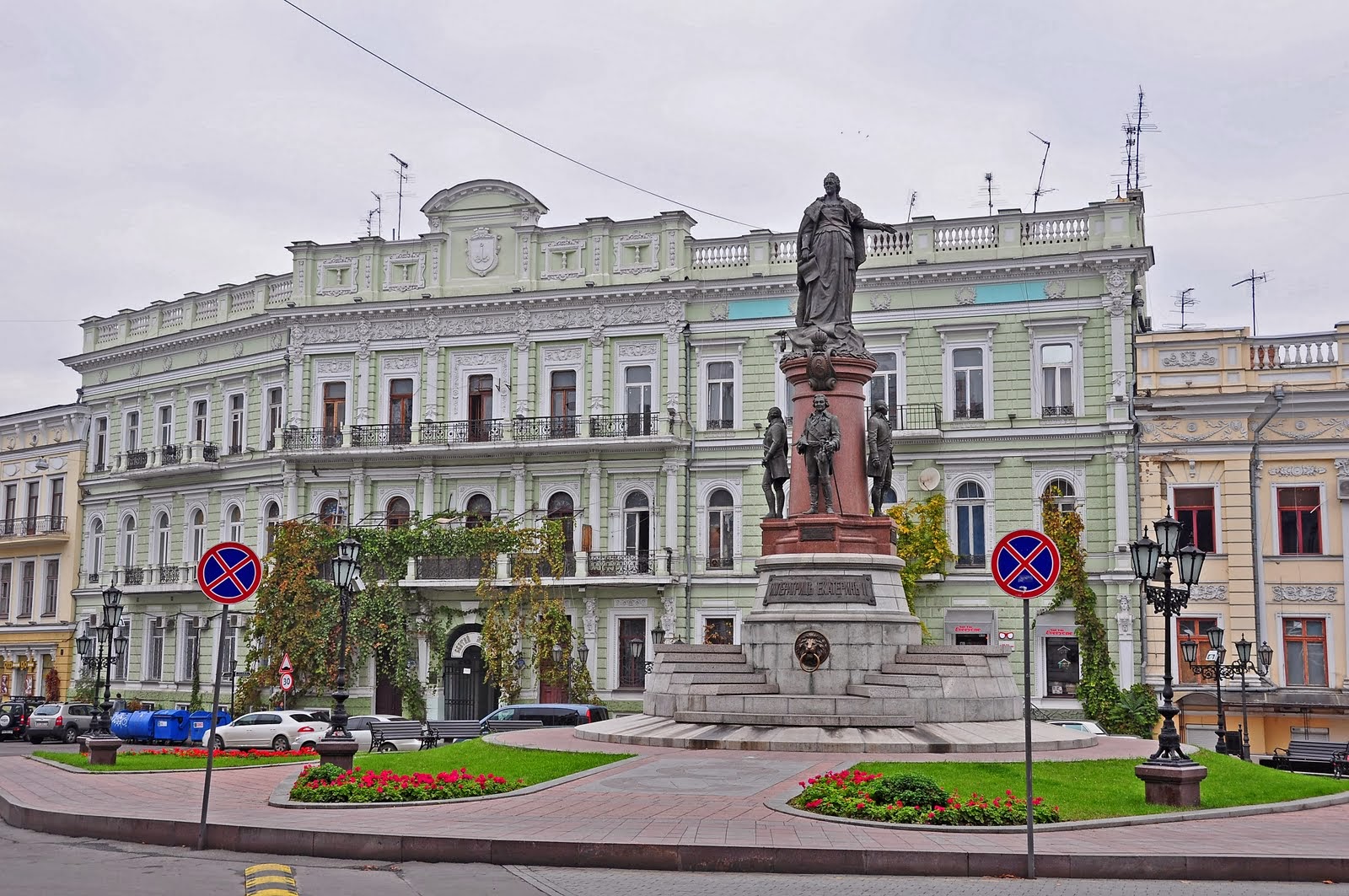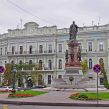
‘National-Cultural’ Enclaves: Moscow’s New Game in Ukrainian-Moldovan Borderland
Publication: Eurasia Daily Monitor Volume: 12 Issue: 68
By:

Russia demands a “special status” for certain territories in Ukraine and Moldova as a device to promote territorial secession processes. Moscow encourages local Russophile groups to claim a “special territorial status” or orchestrates such demands on their behalf, instigating state fragmentation. The first case study is that of Russia’s demand for a “special status” on behalf of Transnistria. Following Russia’s assault on Ukraine, such demands seem to proliferate. Moscow insists on recognition of a “special status” for the Donetsk and Luhansk “people’s republics.” Most recently, that same demand has been aired in Ukraine’s Odesa province and in the Moldovan parliament, ostensibly on behalf of ethnicities that straddle the Ukraine-Moldova border in the southern part of historic Bessarabia.
On April 6 in Odesa, an obscure “Narodnaya Rada Bessarabii” (Bessarabian People’s Rada, “BPR”) held its inaugural conference, calling for a “national-cultural special status” or “national-cultural autonomy” of that ethnically mixed part of Ukraine’s Odesa province. A project of Russian political consultants by all indications, the “BPR” quickly connected with pre-existing like-minded groups in nearby Moldova and Transnistria, and with the outer “Russian World” via Bulgaria’s pro-Kremlin party Ataka (see EDM, April 9).
According to the “BPR press service,” Ataka leader Volen Siderov and Moldova’s former prime minister Vasile Tarlev, who happens to be of Bulgarian ethnicity, have protested against the Ukrainian authorities’ “persecution of the BPR” (Rada-bessarabia.org, accessed April 11). Tarlev headed Moldova’s Communist government in 2001–2008, then set up an Association of Russia’s Friends in Moldova and is currently advocating for the Russia-led Eurasian Union.
Moscow media proclaimed that the “Odesa region’s ethnic minorities have united in the Bessarabian People’s Rada to defend their rights, pressing for ethnic-territorial autonomy” (TASS, April 8). The Russian press also noted that “yet another problem area has emerged in Ukraine,” arguing that “a Bessarabian autonomy may emerge,” and featuring an exclusive interview with this “Rada’s” leader (Nezavisimaya Gazeta, April 8). Ukraine must now confront a “Bessarabian Spring,” according to a pro-Novorossiya mouthpiece (Rusvesna.su, April 7). The undertone of glee was common to the state news agency, the liberal newspaper, and the Novorossiya advocate. They all cast that obscure group misleadingly as a grass-roots initiative. By the time Moscow’s story was out, however, Ukrainian law-enforcement agencies had broken up the would-be Rada.
The established organizations of the Bulgarian and Gagauz communities in “Bessarabia” (part of Odesa province west of the Nistru River) have disavowed the “BPR.” According to Anton Kisse, chairman of the Association of Bulgarians in Ukraine and deputy to the parliament in Kyiv, and Yuriy Dimchoglo, chairman of the Gagauz National-Cultural Society Birlik and deputy to the Odesa Province Council, in a joint statement, “we resolutely condemn the actions of the so-called BPR’s organizers […] we urge the people not to join them, [and] we approve of the measures by the Odesa province state security and police.” They also “reject[ed] the propaganda of federalization” (Dumskaya.net, April 7).
According to Ukraine’s latest census, 621,000 people resided in the Bessarabian part of Odesa province as of 2001. The census recorded 40.2 percent Ukrainians, 21 percent Bulgarians, 20 percent Russians, 13 percent Moldovans, 4 percent Gagauz, and some smaller groups in that population. The ethnic breakdown, however, does not coincide with the language breakdown, owing to the historic legacy of linguistic Russification of non-Russians. Fully one half of the ethnic Ukrainians and about the same number of Bulgarians declare Russian as their native language and/or their language of first use. Russian remains the dominant language in local media and all spheres of public life (State Statistics Committee of Ukraine, accessed April 13).
This situation underscores the manipulative character of “BPR’s” claim to “national-cultural special status” in an ethnically mixed area where Russian is the lingua franca. Such claims attempt, in effect, to delimitate this territory, as some sort of a “Russian-speaking” enclave, from the rest of Ukraine. In the same vein, this project references “Bessarabians” as an overarching identity of these ethnic communities. This implies moving away from the Ukrainian nation-building project and reorienting instead toward the kindred ethnic communities in Moldova’s part of Bessarabia. Those same ethnicities reside in that territory (although the proportions are different) directly across the border.
In that part of the debilitated Moldovan state, a Gagauz autonomy exists quiescently, but its gaze is fixated on Russia. A proposal to create a Bulgarian special-status district was approved by the Moldovan parliament in the first reading on April 3, closely coinciding with “BPR’s” April 6 attempted launch. Bessarabia, moreover, is not confined to that southern part divided between Ukraine and Moldova. The term “Bessarabia,” by definition, encompasses all of Moldova westward of Transnistria. By that logic, any community in Moldova is potentially eligible to be included in “BPR’s” project for “Bessarabians” (Ava.md, April 10).
Ukraine’s Bessarabian territory is situated between the Nistru River, the Danube Estuary and the Black Sea. It borders on Moldova and on Romania. Administratively, it is a part of Odesa province, whose entire territory on both banks of the Nistru River is a focus of Russia’s Novorossiya project. While Ukraine is the direct target, Moldova and Romania are the indirect targets of that project, the success of which would turn Moldova and Romania into frontline states directly facing Russia.
Divided between Ukraine and Moldova, the southern part of Bessarabia displays the same multi-ethnic mix on either side of the border. Bulgarians are the second-largest ethnic community on either side. While ethnic Ukrainians form a plurality on the Ukrainian side of the border, the situation is different on the Republic of Moldova side. There, the Moldovan ethnicity forms minorities in jurisdictions with predominantly Bulgarian and Gagauz populations. Moldova’s pending legislation, offering “special status” to a Bulgarian-majority district and potentially to other districts or cities, could reverberate directly across the border in Ukraine’s Odesa province. It would enable pro-Russia circles there, and Moscow itself, to cite a Moldovan precedent in support of new calls for special territorial status.




